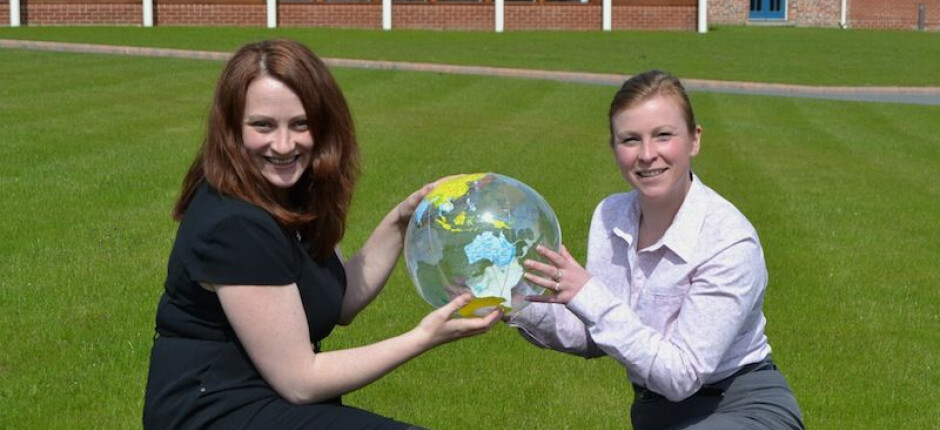
It’s with such a sense of achievement that we say ‘Happy Birthday Open Communications’. To think that it was over a decade ago we launched the business is hugely rewarding but also scary in equal measure.
Some days it feels like a lifetime ago and then others it could have been yesterday. So much has happened in the last 12 years. We have grown, both as an organisation and as individuals. It has been a rollercoaster but one that I would get on and ride all over again.
There have been a few things that have helped us along the way. Knowing that times are tough for others, I thought it may be useful to recap and to pass on what I have learnt.
Network has to equal net gain
When we launched, like many small start-ups, we went along to every networking event available. This was the right thing to do. What we should have realised, perhaps sooner than we did, was that some just aren’t the right fit.
There doesn’t have to be a specific reason, it might just be the format. For us, we found those that did work, and we realised that when you want to help each other you get a better return all round. In our experience being forced to attend or to pass on referrals was counterproductive.
Thankfully, the business community we are now a part of is hugely supportive. We have a close group that we can rely on and that suits us. In order to attract new opportunities, we let our results do the talking.
Location, location, location
We were criticised when we started for choosing to be based in Wakefield. A lot has changed over the years and this was one of the best decisions we made. The District may not have been a vibrant hotspot at the time, but it is becoming increasingly popular now.
Not only has there been huge investment in Wakefield over the years, it has also attracted some globally recognised brands and ambitious entrepreneurs.
Rather than become a small fish in a large pond, we felt that we could grow with Wakefield and that is exactly what has happened. In 2008 we had a box room at the bottom of the city. Today, we have a three-storey office in the heart of the legal and financial centre.
Thinking about location is so important. It gives us a point of difference and it has allowed us to make our mark for all the right reasons.
Building a reputation
As a business that manages the reputation for others, it goes without saying that we focus on our own too. This has always been imperative for us. We practice what we preach, and we make sure that clients have a lasting and positive impression, however long we work with them.
Only a week ago I took a call from a former client asking if I had time for a chat. The answer is always yes, and they explained they may be looking for PR services. I thanked them for thinking of us and the response was, “Why would I consider anyone else?”.
We never take feedback like this for granted. Quite the opposite. We make sure that we say thank you and that we treat people as we would like to be treated. It’s the little things that go a long way. For client’s to come back to us time and again is a real compliment. It’s also just one reason why we are here today saying Happy Birthday Open Communications.
Don’t look back in anger
A great song and a great lesson to learn. As a business owner it is incredibly difficult not to take things personally. After all, everything is personal when the company is founded on your own values. That said, I have learnt over the years to try not to take things to heart.
It’s not easy and I still struggle, however I know that in some instances it’s best not to sweat the small stuff.
Everyone makes mistakes, it’s what makes us human, the important thing is learning from them. I’ve lost count of the number of nights I have lost sleep over something trivial. A former colleague once said, “It’s PR not ER” and I think they were right.
It’s not about how much you care; it’s caring for the right reasons.
Celebrate success
As an organisation, we find this really hard and it’s something we are working on. As a business we have so much to be proud of and to celebrate yet we get caught up in lists and tasks, prioritising everything over ourselves.
It is important for companies to celebrate success, however small. We know this and we will be making more of an effort. We do raise a glass at key moments throughout the year, however we need to be better at doing so more often.
Sometimes giving yourself a pat on the back is the hardest thing you can do. It’s far easier to beat yourself up. The real challenge is recognising that no one will thank you for giving yourself a kicking. Having a more positive mindset can be passed to others and that is a lasting impression that will make a lasting difference.
Never stop learning
PR is an evolving industry. It never stops and neither do we. Learning new skills keeps us all interested and gives us so much to think about when we plan every campaign for our clients.
Whatever sector our clients work in, the tactics we have access to are changing. This means we can share new ways of working that could deliver stronger results. We are honest and open with the brands we manage, and many of them are willing to try new things. We could just keep our approach exactly the same, but where is the fun in that?
What never fails to amaze me, is that more than two decades on and I’m still as excited by PR and what the industry has to offer as I ever was. I think once I stop getting butterflies in my tummy, it’s time to call it a day.
Thankfully the flutter is still there!
Be thankful
Having a business is difficult. There are no two ways about it. Times can be really hard and it can be stressful. In contrast, things can be great and you grin from ear-to-ear. The reality is that there is no consistency. That’s why it’s like a rollercoaster ride.
Being thankful for what you have is really important. It’s so easy to let things get on top of you. Taking a moment to stop and to look at how far you have come will make a big difference. For me, having a business with one of my closest friends – and still being friends – is an achievement in itself. It is so easy to fall out, however we recognise our skills and both see the value in each other. We don’t always agree, but we don’t have to. I’m thankful the values that matter are those that we share.
A huge pitfall for companies is to spend too much time watching competitors. The truth is, if your clients want to work with someone else, they will. I would rather spend the time focusing on my business and making the changes I need to keep my clients happy than obsessing about what others are doing.
Happy Birthday Open Communications
And so, with that, I want to take this opportunity to say, Happy Birthday Open Communications. It’s been an adventure and the journey is far from over. We have some exciting plans and we look forward to what the next decade has to offer.
For all of our colleagues, clients, friends and family – thank you. Without you all we wouldn’t be what we are today. We hope you will join us in raising and glass. Cheers!
If you would like to speak to us about your PR needs or how we could add value to your business, please call a member of the team.








